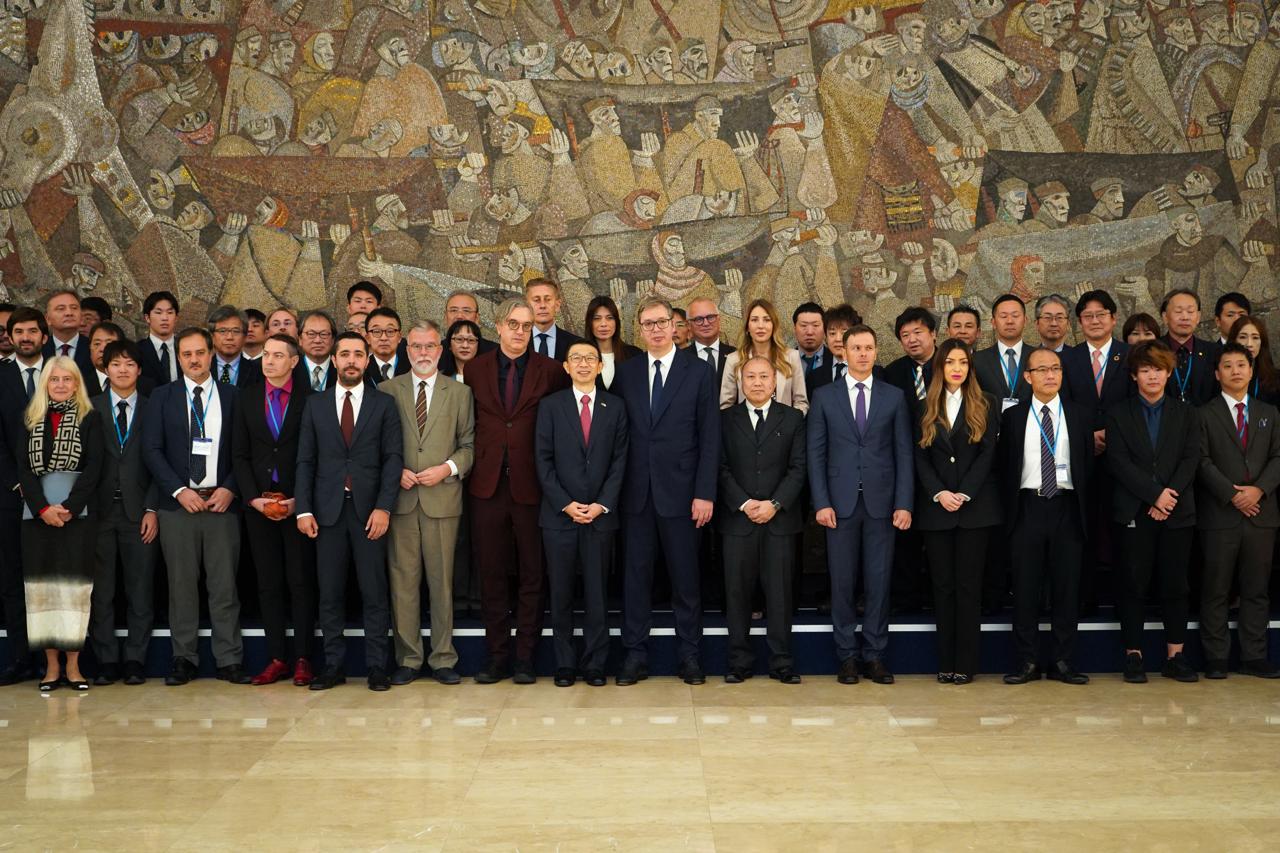Čadež: Serbian and Japanese Companies are Building the Future Together
Oct 18, 2024
Serbia boasts highly successful companies across almost all sectors, from ICT to the food industry, which can serve as reliable partners to Japanese firms in Europe, and together we can create solutions for the future, said Marko Čadež, the President of the Chamber of Commerce and Industry of Serbia (CCIS), at the Serbia-Japan Business Forum.
The forum was organized as part of the visit of the largest Japanese business delegation to Serbia, which included over 100 businesspeople from 75 companies. The first part of the forum was dedicated to discussions between the Japanese delegation and Serbian government ministers, with Serbian President Aleksandar Vučić addressing the participants.
“This is the largest Japanese business delegation that has ever visited Serbia, and I thank you for being here. We have successfully advanced our relations and achieved a lot of good work together, including new Japanese investments in Serbia. Strengthening ties with Japan is of utmost importance to us, and that’s why I urge you to visit our country more often. Dear friends, I hope you feel at home in Serbia, and we will do our best to prove ourselves as reliable partners,” said President Vučić at the Serbia-Japan Business Forum, which was attended by representatives of Japan's Foreign Trade Organization JETRO and various Japanese companies.
_960x639.jpg)
Speaking at the gathering at the Palace of Serbia, which brought together more than 250 Serbian and Japanese businesspeople, Čadež emphasized that leading companies from both Serbia and Japan, which are already “living the future,” are participating in the forum, and together they can create the most innovative solutions across all sectors. He thanked Prime Minister Vučević for his support of the business community and dedication to building a business environment that sets records in attracting investments—75% of all investments in the region are in Serbia, with an annual value exceeding four billion euros.
“Our top export is software, and exports have grown tenfold in the last ten years. Our children are learning programming from elementary school. There’s no sector where we can’t successfully collaborate with Japanese companies,” Čadež said.
He highlighted highly successful, innovation-leading companies such as the Biosense Institute, Mind Park in Kragujevac, Termometal, Netico Solutions, DP World, Mikroelektronika, and others. The CCIS president also announced the organization of a major business forum in Japan as part of the Expo 2025, which will be held next year in Osaka.
_960x639.jpg)
Prime Minister of Serbia Miloš Vučević noted that the stable and predictable business environment in Serbia is reflected in its stable monetary and fiscal policies. He added that the country’s education system is being developed in cooperation with the business sector, especially through the introduction of dual education programs.
Addressing both Serbian and Japanese businesspeople and institutional representatives, the Prime Minister emphasized that reforms in the rule of law sector have also been made, which is very important for investors. "I believe that, after this visit, foreign investments will increase both in quality and quantity," Vučević stated.
He invited Japanese companies to take advantage of Serbia’s geopolitical position, which provides duty-free access to a market of nearly three billion people, and emphasized that Serbia has strong economic relations with the U.S., European, Asian, and African countries. He also invited them to visit EXPO 2027, just as Serbia's representatives will attend EXPO in Osaka next year.
_960x639.jpg)
Nikola Janković, Director of the International Cooperation Sector at the Serbian Development Agency, pointed out that Serbia and Japan have strong political and diplomatic ties and that bilateral cooperation has excellent prospects for further growth. Key investors such as Nidec and NTT recognize Serbia's favorable business environment, skilled workforce, and significant investments in innovation. "The government is investing in infrastructure, science, and technology, and thanks to free trade agreements, Serbia exports to a market of 2.7 billion consumers," Janković said.
_960x639.jpg)
Susumu Kataoka, President of the Japan External Trade Organization, emphasized that this is the largest Japanese delegation ever to visit Serbia, a clear sign of the great interest in cooperation. "The Japanese agency has been following Serbia's development for the past 15 years. The first Japanese investment in Serbia was made by JTI in 2006, followed by investments from companies like Hi-Lex and Yazaki. Today, Japanese investments have expanded into the pharmaceutical and ICT sectors," Kataoka said. He added that, according to a recent survey among Japanese businesspeople, 50% of companies plan to expand their operations in Europe. He also invited Serbian companies to visit Expo 2025 in Osaka.
_960x639.jpg)
LATEST NEWS
